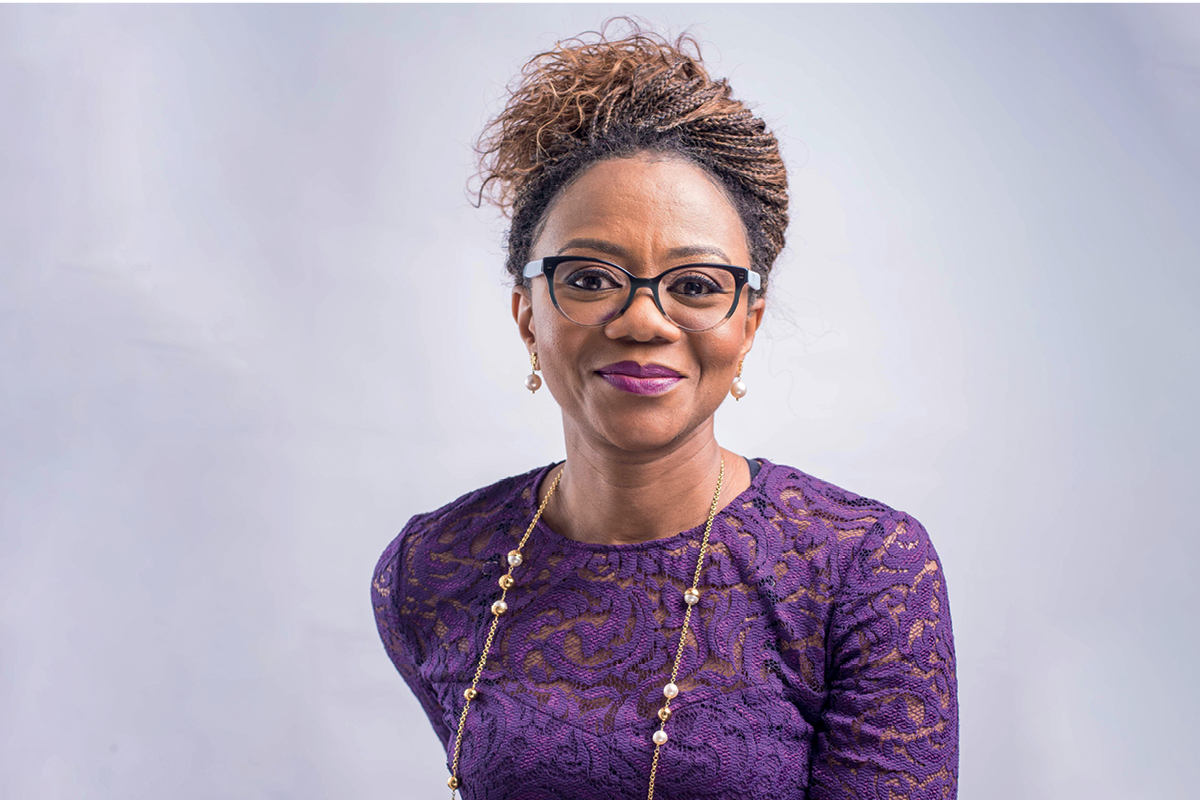Early on in her career, when Adesimbo Ukiri (also known as Simbo) worked as the head of finance for a Nigerian oil and gas company, she had a conversation that came to define her experience as a female business leader for the next 20 years.

After delivering a presentation on the company’s financial situation to her colleagues and members of the board, her most senior female colleague approached her and said, “Simbo, you smile too much. That warmth you are portraying – it will be seen as a sign of weakness. You need to appear focused. Being friendly isn’t necessary.”
“I never forgot that. It was a very rude shock, but I adjusted,” Simbo says. “I was taught to keep that part of myself not only hidden but suppressed.” It took years for Simbo to unlearn her former colleague’s admonition.
During a yearlong fellowship at the London Business School in 2007, she started to realise that she needed to develop her own, authentic leadership style and voice. When she was recruited to become CEO of Avon Healthcare in 2012, she was finally able to put this into practice.
“Most women are naturally nurturing, and I’ve found that working in health care has brought out that part of me. I’ve grown more comfortable in allowing my femininity to come through, and it’s made me a much more effective leader because, at the end of it all, what we do is that we care for people,” Simbo says.
“One of the things I enjoy most about being CEO of Avon is that we have a work environment in which it is okay to care.” Simbo brings this caring attitude to work every day as she tries to normalise the concept of health insurance in Nigeria, where only 4% of people are insured, most of them civil servants or employees of large corporates.
Avon seeks to reach smaller organisations and private individuals – a market that is still in its early stages. “Our goal is to ensure that having a health plan is something that every individual commits to, in the same way people commit to consumer brands,” Simbo says.
“We want to build that kind of relationship with the Nigerian population and help to come up with a portfolio of plans that makes health insurance within reach for every Nigerian who has some level of earning power.”
Avon also seeks to raise the quality of healthcare services throughout Nigeria by building a network of hospitals that are required to meet international standards and follow protocols for common ailments prescribed by the World Health Organization.
“For every healthcare facility that we sign on, we go through an accreditation process. We have a department in house that is made up of physicians, supported by nurses and other medical professionals,” Simbo says.
“If they do not meet our standards, we give them a time within which to catch up in the areas where we found gaps. Only after closing these gaps will they be allowed to join.”
Simbo credits her previous experience in the FMCG sector with her success in building the Avon brand to the point that it has become synonymous with private health insurance in Nigeria. “We’re a brand that listens,” she says.
“I believe that right now Avon is the leading brand in Nigeria. It’s my background in FMCG that gives me the ability to do that – to understand how to engage with consumers en masse and how to build attributes with which consumers will feel a connection.”
Simbo’s approach to leadership is obviously working, with international recognition of Avon’s success under her guidance. The London Stock Exchange Group listed Avon as one of the ‘Companies to Inspire Africa in 2019’ – the only health management organisation in Nigeria to be so acknowledged.
The company was also named among the top 10 ‘Best Companies to Work for in Africa’ (Small Corporates Category) by the Great Place To Work Institute in 2019 and took out the ‘Best Workplace for Millennial Generation’ award at the same time.
That is not to say the business isn’t tough. Simbo often finds herself having to explain to customers that health insurance isn’t a prepayment that can be refunded if it isn’t used, nor is it a means for passing on the financial responsibility for a condition that has already been diagnosed.
But after years of explaining the concept of pooling risk to potential customers, people have begun to see that it works. “Our work has made the entire industry more credible,” Simbo says.
“When you engage with us, we will make sure that your life is actually healthy. We will insure you. We will empower you to live healthier and fuller lives. I will never let you down. Just come to us.”


